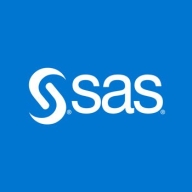

Teradata and SAS Data Management are key players in data warehousing and data integration markets, respectively. Teradata seems to have the edge due to its exceptional performance in processing large data volumes quickly.
Features: Teradata provides massive parallel processing, scalability, and a shared-nothing architecture that ensures high-speed data processing, making it ideal for data warehousing. It stands out in data loading, transformation, and executing complex queries. SAS Data Management, however, excels in data integration and governance, offering robust data standardization, transformation, and verification features, ensuring a unified data view.
Room for Improvement: Teradata could enhance its cloud capabilities, streamline licensing, and improve transactional performance. Users seek more competitive pricing and better platform integration. SAS Data Management needs improved stability, better documentation, and hybrid cloud integration while offering more economical pricing. Enhanced connectivity for seamless cloud migration is also recommended by users.
Ease of Deployment and Customer Service: Teradata supports multiple deployment models including on-premises, cloud, and hybrid, with highly rated technical support for its responsiveness and expertise. SAS Data Management also offers on-premises and hybrid deployments but has mixed reviews concerning deployment complexity and support. Users express a desire for simpler integration and technical assistance.
Pricing and ROI: Teradata, often perceived as expensive, offers significant value in performance and ROI, with a shift towards more flexible cloud pricing options. Users justify the cost with its advanced analytics capabilities. SAS Data Management is similarly costly, which could limit market penetration. The high licensing expenses are counterbalanced by integrated solutions and cloud trial access.
We have realized a return on investment, with a reduction of staff from 27 to eight, and our current return on investment is approximately 14%.
The support for SAS in Brazil is not the best one, but the support in Sweden is really good, as they visit the company and work to solve the issues.
The customer support for Teradata has been great.
Customer support is very good, rated eight out of ten under our essential agreement.
The technical support from Teradata is quite advanced.
This expansion can occur without incurring downtime or taking systems offline.
Teradata's scalability is great; it's been awesome.
Scalability is complex as you need to purchase a license and coordinate with Teradata for additional disk space and CPU.
I find the stability to be almost a ten out of ten.
The workload management and software maturity provide a reliable system.
There is significant room for improvement, especially with regard to using a hybrid approach that involves both CAS and persistent storage.
Unlike SQL and Oracle, which have in-built replication capabilities, we don't have similar functionality with Teradata.
If Teradata could provide a list of certified experts, that would be fantastic.
From my experience, SAS Data Management is an expensive tool.
Teradata is much more expensive than SQL, which is well-performed and cheaper.
Initially, it may seem expensive compared to similar cloud databases, however, it offers significant value in performance, stability, and overall output once in use.
We spent roughly $295,000 on setup costs.
SAS Data Management stands out because of its data standardization, transformation, and verification capabilities.
The best features I appreciate about SAS Data Management tool are that it's easy to create the flows and schedule data, and the tables are not too big, making it easy to control the ETL process, including user access which is also easy to manage in SAS.
Teradata's security helps our organization meet compliance requirements such as GDPR and IFRS, and it is particularly essential for revenue contracting or revenue recognition.
The data mover is valuable over the last two years as it allows us to achieve data replication to our disaster recovery systems.
| Product | Market Share (%) |
|---|---|
| Teradata | 0.8% |
| SAS Data Management | 0.9% |
| Other | 98.3% |


| Company Size | Count |
|---|---|
| Small Business | 7 |
| Midsize Enterprise | 1 |
| Large Enterprise | 8 |
| Company Size | Count |
|---|---|
| Small Business | 26 |
| Midsize Enterprise | 12 |
| Large Enterprise | 49 |
Every decision, every business move, every successful customer interaction - they all come down to high-quality, well-integrated data. If you don't have it, you don't win. SAS Data Management is an industry-leading solution built on a data quality platform that helps you improve, integrate and govern your data.
Teradata is a powerful tool for handling substantial data volumes with its parallel processing architecture, supporting both cloud and on-premise environments efficiently. It offers impressive capabilities for fast query processing, data integration, and real-time reporting, making it suitable for diverse industrial applications.
Known for its robust parallel processing capabilities, Teradata effectively manages large datasets and provides adaptable deployment across cloud and on-premise setups. It enhances performance and scalability with features like advanced query tuning, workload management, and strong security. Users appreciate its ease of use and automation features which support real-time data reporting. The optimizer and intelligent partitioning help improve query speed and efficiency, while multi-temperature data management optimizes data handling.
What are the key features of Teradata?In the finance, retail, and government sectors, Teradata is employed for data warehousing, business intelligence, and analytical processing. It handles vast datasets for activities like customer behavior modeling and enterprise data integration. Supporting efficient reporting and analytics, Teradata enhances data storage and processing, whether deployed on-premise or on cloud platforms.
We monitor all Data Integration reviews to prevent fraudulent reviews and keep review quality high. We do not post reviews by company employees or direct competitors. We validate each review for authenticity via cross-reference with LinkedIn, and personal follow-up with the reviewer when necessary.